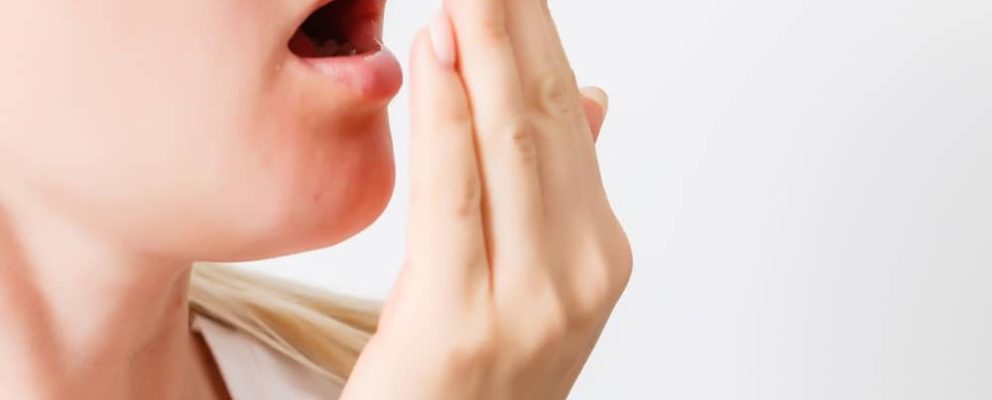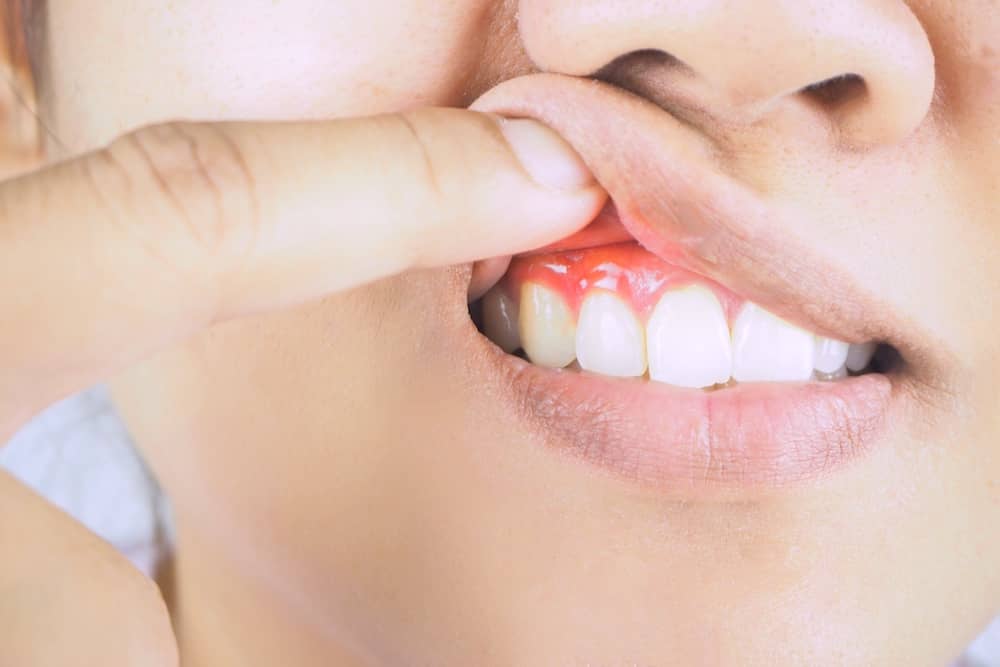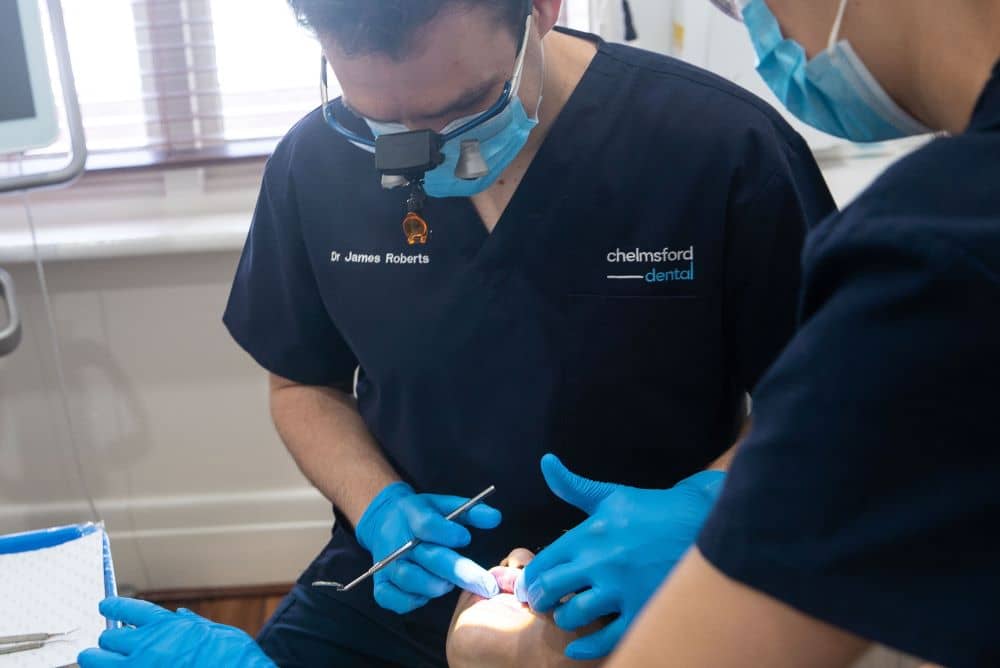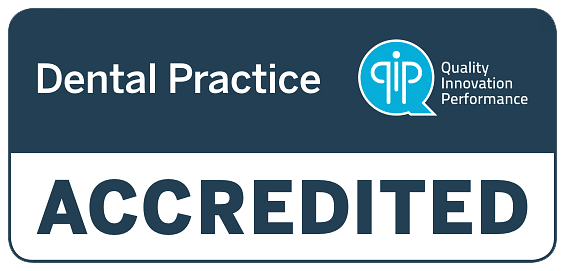Are you constantly wondering if your breath smells? Are you insecure in crowded situations and worried about close interactions?
If you deal with bad breath, you are not alone. This common condition will happen to all of us at some point.
However, some individuals deal with bad breath consistently. Here, we’ll look at how to fight bad breath, what causes bad breath, and when to talk to your dentist about bad breath.
What Causes Bad Breath?
Bad breath, or halitosis, can have a wide range of causes. Most commonly, bad breath is a result of bacteria feeding on leftover food debris in the mouth. When the bacteria die, they give off sulphur compounds that cause the breath to have a foul odour.
Read on to learn about some of the most common causes of bad breath.
Poor Oral Hygiene
When you don’t brush or floss often enough, food debris in your mouth begins rotting and allows bacteria to feed on the debris. This debris leads to unpleasant breath and also increases your risk of gum disease, cavities, and other oral health issues.
Tooth Decay
When bacteria feed on debris in the mouth, they produce acids that can harm tooth enamel. This makes the enamel susceptible to decay (cavities). These tiny holes in the teeth can trap food debris and make bad breath worse.
Gum Disease
Persistent bad breath may be a result of gum disease, a condition caused by the buildup of plaque. This plaque eventually forms tartar, which must be removed by a dental professional.
When plaque and tartar build-up, it creates an ideal environment for bacteria. These bacteria contribute to decay, gum disease, and bad breath, and can even harm the bone structures of the mouth.
Severe gum disease can cause the gum tissues to recede and pull away from teeth, forming deep pockets where plaque and bacteria can collect and thrive. Gum disease must be addressed by a dental professional immediately to prevent serious oral health complications, such as tooth loss.
Dry Mouth
Dry mouth, also known as xerostomia, is another cause of bad breath. Saliva helps naturally clean the mouth by sweeping away food particles and debris.
Without adequate saliva, food debris can build up and cause bad breath. A dry mouth can be a result of dehydration, certain illnesses, or certain medications. Talk to your dentist or doctor if you are experiencing dry mouth.
Pungent Foods
Garlic and onions are two foods that are well-known for their health benefits — and their ability to cause bad breath!
Onions and garlic are both high in sulphur, a compound that can cause bad breath. Fortunately, bad breath that results from potent foods is typically only temporary. So, there is no reason to avoid these healthy foods, but you may want to be prepared with a mint!
Smoking and Tobacco Usage
Chewing tobacco and smoking are notorious causes of bad breath. Along with the potent smell of cigarette smoke, smoking or using tobacco dries out the inside of the mouth. Smoking also contributes to gum disease, another cause of bad breath.
Diet
Your overall diet can affect your breath. Too many high-sugar drinks and foods can lead to an overgrowth of bacteria that results in bad breath (not to mention cavities, decay, and an increased risk of gum disease!).
Low-carb diets can also cause bad breath. When people consume diets extremely high in protein and low in carbs, the body can enter ketosis, a metabolic state where the body burns fat as its primary source of fuel instead of carbs. During ketosis, ketones are released by the body and can result in stinky breath, also known as “ketosis breath”.
Certain Prescription Medications
Certain medications, especially ones that dry out the mouth, can cause bad breath. Diuretics, decongestants, antihistamines, and sedatives can be the culprits behind bad breath.
If you are taking prescription medication and concerned about halitosis, contact your healthcare provider.
Underlying Illness or Medical Condition
Bad breath may be an indicator of an underlying illness or medical condition. For instance, tonsil stones, diabetes, and allergies may cause bad breath.
Talk to your doctor or dentist if you have persistent bad breath. Your healthcare provider will rule out any medical conditions that may be causing your bad breath or suggest lifestyle changes to help.
What Are Some Ways to Fight Bad Breath?
Practice Good Oral Hygiene
The first step in preventing bad breath is committing to a good oral hygiene routine. Brush your teeth at least twice a day using a soft-bristled toothbrush, fluoride toothpaste, and gentle circular motions.
Be sure to floss at least once a day to remove food debris from crevices, between the teeth, and along the gum line. Gently brushing your tongue can also help remove any film that may be contributing to your bad breath.
Related Reading: Your Guide to Better Oral Health
See Your Dentist for Regular Checkups
Another important way to prevent bad breath is by seeing your dentist for regular checkups. Regular dental checkups ensure that plaque and tartar are cleaned from your teeth and allow your dentist to recognise and treat any problems as early as possible.
Drink Enough Water
Water helps support saliva production and naturally rinses away food debris and bacteria. Be sure to drink at least 6 to 8 glasses of water a day, or more depending on your activity level, to stay adequately hydrated.
Ditch the Soda and Alcohol
Alcoholic drinks or sugary beverages expose your teeth to high amounts of sugar. Reducing the amount of sugar that your teeth are exposed to can help prevent bad breath and cavities.
Ask Your Doctor About a Probiotic Supplement
The right bacteria can help fight the harmful bacteria that contribute to bad breath. Ask your doctor if a probiotic supplement may be beneficial to you. You can also try adding unsweetened, plain yoghurt to your diet as a natural source of probiotics.
Are There Home Remedies for Bad Breath?
While practising good oral hygiene and seeing your dentist for regular checkups are the most important ways to prevent bad breath, there are some home remedies for bad breath you may want to try:
- Have an apple after meals with potent ingredients, such as garlic or onions. There is a special compound in apples that can cancel out the smell of garlic!
- Chew on some parsley leaves. With its high levels of chlorophyll, the compounds in parsley can help neutralise bad breath.
- Drink a glass of full-fat milk to help fight bad breath, particularly after consuming pungent foods.
- Snack on an orange. With their high vitamin C content, oranges can help support adequate saliva production, wash away harmful bacteria, and support better breath.
- Along with oranges, you can also try drinking some pineapple juice to help fight bad breath. Just make sure to rinse your mouth with water after due to the high sugar content in pineapple juice.
- Keep track of what you eat and drink for a few weeks to see if you can pinpoint certain foods or beverages that make your bad breath worse.
- If you wear dentures, be sure to clean them thoroughly every day as they can trap food debris and bacteria, just like normal teeth, and cause bad breath.
What Is the Best Mouthwash for Bad Breath?
There are almost endless options for mouthwashes, but many are ineffective at fighting bad breath. Mouthwashes can make bad breath worse if they are high in alcohol. While the alcohol content will kill bacteria, it also contributes to dry mouth.
If you have persistent bad breath, ask your dentist if a prescription mouthwash may help.
Why Do I Have Bad Breath Even After Brushing My Teeth?
If you still have bad breath despite maintaining a good oral hygiene routine, your bad breath may be a result of dry mouth, gum disease, or an underlying medical condition. Talk with your dentist if you are experiencing persistent bad breath even after you brush and floss.
Can Certain Vitamins and Minerals Prevent Bad Breaths?
Certain vitamins and minerals can help prevent bad breath, particularly zinc, vitamin C, vitamin D, and B vitamins.
Zinc is known for its ability to help combat volatile sulphur compounds in the mouth. Additionally, too little zinc can contribute to dry mouth and make bad breath worse. If you are concerned about your nutrient intake or persistent bad breath, talk with your doctor.
Related Reading: The Role of Diet in Good Oral Health
When Should I See My Dentist or Doctor About My Bad Breath?
If you brush twice a day, floss at least once a day, drink enough water, and consume a healthy diet but still deal with bad breath, talk to your dentist or doctor about your concerns.
Your healthcare provider can rule out any underlying medical conditions that cause bad breath, suggest lifestyle changes, examine any prescription medicines you take, and suggest treatment for bad breath.
Are You Concerned About How to Treat Bad Breath?
Brushing and flossing daily, eating a healthy diet, drinking enough water, and seeing your dentist for regular checkups are all important ways to fight bad breath.
If you are concerned about chronic bad breath, schedule a consultation with your dentist. At Chelmsford Dental, we’re here to help you feel confident about every aspect of your smile. And that includes your breath!
If you are self-conscious about your bad breath or worried it may be linked to an underlying illness, contact our caring team to book an appointment. We’ll get to the bottom of your halitosis and determine a treatment plan that will have you feeling confident again.











